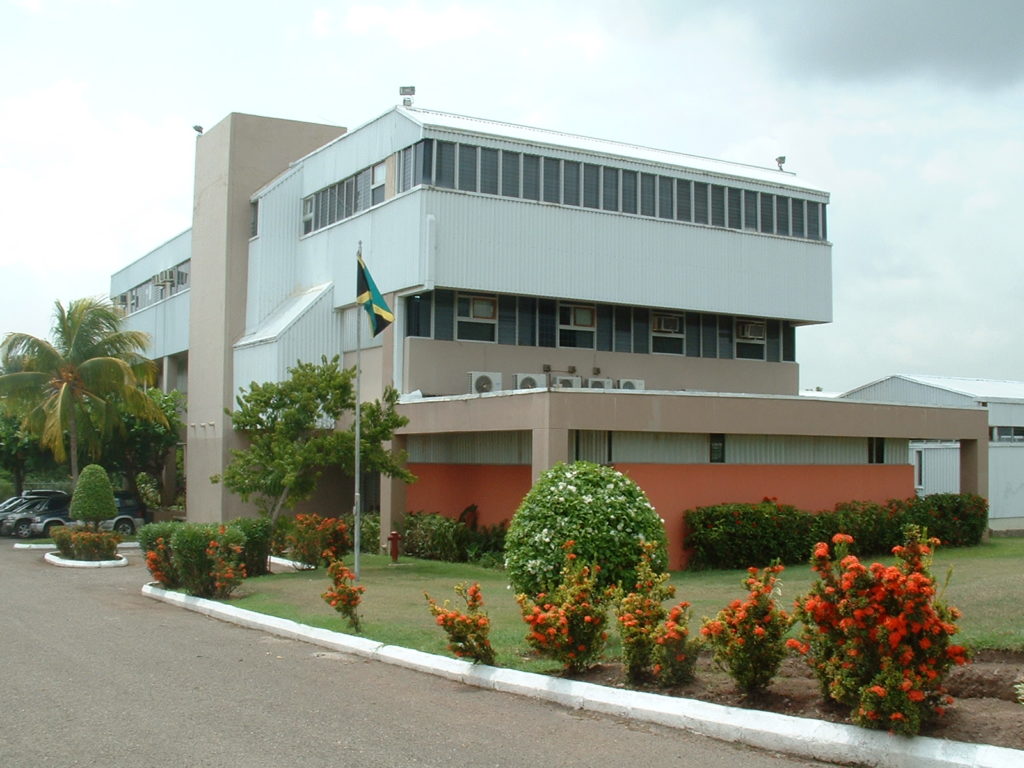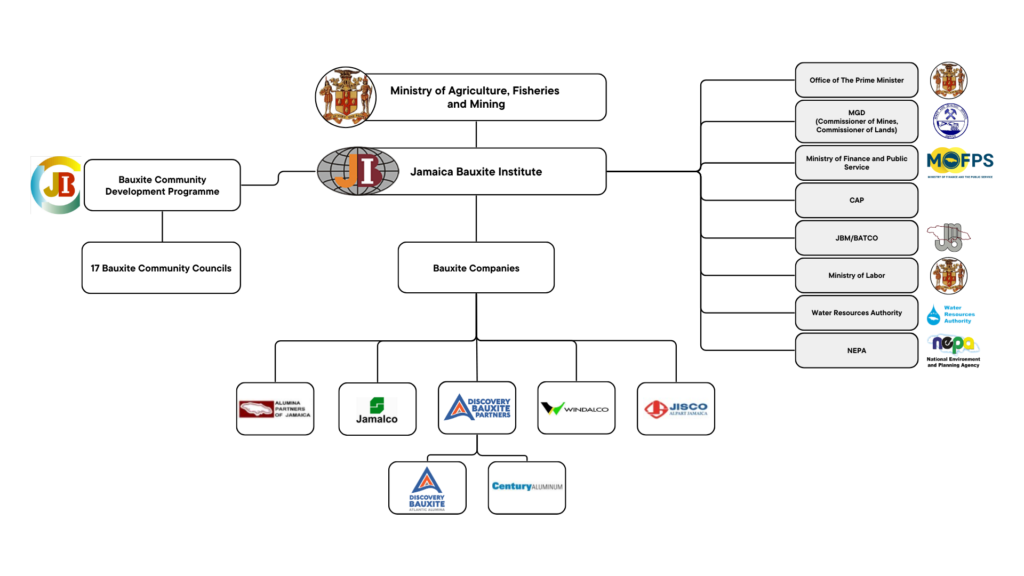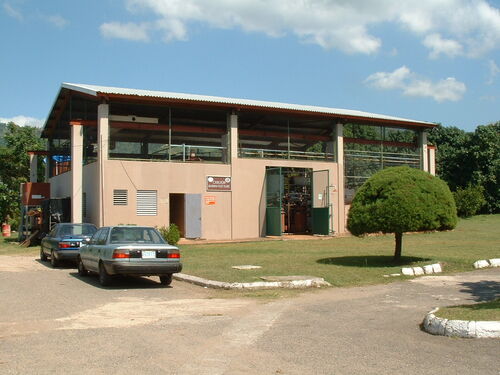About The J.B.I
The Jamaica Bauxite Institute

The Jamaica Bauxite Institute (JBI) is a recognized repository of information on bauxite and alumina, and enjoys a solid reputation for research and analysis of data and trends in the industry. The existence of the JBI puts Jamaica in the position of being one of the few developing countries with an institution devoted solely to the research and development of one of its prime mineral resources.
After the completion of the Bauxite Levy negotiations in 1975, it was noted that the absence of an organization to monitor, evaluate and conduct research on the bauxite/alumina industry, and to protect the interest of the Jamaican Government in the industry, was a major weakness on the Government’s side.
In order to address this imbalance, three institutions were created: the Jamaica Bauxite Institute (JBI), Jamaica Bauxite Mining Ltd. (JBM) and the Bauxite and Alumina Trading Company (BATCO). Established in 1976 as an arm of the Jamaican National Investment Company, the JBI’s role was to deal mainly with the sovereign aspects of the Government’s participation in the industry. It was also to give technical support to the other two institutions.
- Industrial Relations
- The Future
The primary focus of the JBI for the future is to enhance the competitive position of the local industry through greater productivity and a stable industrial climate, to facilitate additional investment and the modernization of the plants, consistent with sound environmental practices.
Encouraging protection of the environment includes strengthening the Institute’s capacity to monitor and undertake environmental research and ensuring that environmental practices of the industry are in keeping with the highest standards worldwide. Research on specific problems in the processing of alumina, red mud disposal and utilization and the exploration of reserves for future mining operations in Jamaica are also vital areas which will continue to receive the priority attention of the JBI.
The Jamaica Bauxite Institute
The Jamaica Bauxite Institute (JBI) is a recognized repository of information on bauxite and alumina, and enjoys a solid reputation for research and analysis of data and trends in the industry. The existence of the JBI puts Jamaica in the position of being one of the few developing countries with an institution devoted solely to the research and development of one of its prime mineral resources.
After the completion of the Bauxite Levy negotiations in 1975, it was noted that the absence of an organization to monitor, evaluate and conduct research on the bauxite/alumina industry, and to protect the interest of the Jamaican Government in the industry, was a major weakness on the Government’s side.
In order to address this imbalance, three institutions were created: the Jamaica Bauxite Institute (JBI), Jamaica Bauxite Mining Ltd. (JBM) and the Bauxite and Alumina Trading Company (BATCO). Established in 1976 as an arm of the Jamaican National Investment Company, the JBI’s role was to deal mainly with the sovereign aspects of the Government’s participation in the industry. It was also to give technical support to the other two institutions.
- Industrial Relations
- The Future
The primary focus of the JBI for the future is to enhance the competitive position of the local industry through greater productivity and a stable industrial climate, to facilitate additional investment and the modernization of the plants, consistent with sound environmental practices.
Encouraging protection of the environment includes strengthening the Institute’s capacity to monitor and undertake environmental research and ensuring that environmental practices of the industry are in keeping with the highest standards worldwide. Research on specific problems in the processing of alumina, red mud disposal and utilization and the exploration of reserves for future mining operations in Jamaica are also vital areas which will continue to receive the priority attention of the JBI.
Environmental Stewardship and Sustainability
The JBI has spearheaded a new alliance with the companies and host communities to strengthen the ability of communities to be sustainable after mining is completed. So far, six Community Councils have been established, and it is expected that these will provide the forum for the discussing and settling of problems which may arise. The Institute has been inviting proposals in light industries, cooperative agricultural ventures, animal rearing, cottage industries and aquaculture. All these ideas have come from the people and their representatives.
The JBI has accelerated its public education efforts, to help Jamaicans better understand the critical importance of the bauxite/alumina industry to the national economy. It has hosted community forums in rural areas to achieve this, and intends to expand its message via the mass media.
Roles & Functions
The Jamaica Bauxite Institute (J.B.I.) was established by the Government of Jamaica in 1975 and is a limited liability company incorporated under the laws of Jamaica in October 1975.
1
2
3
Monitor and make recommendations to ensure adequate pollution controls and other environmental programmes in the industry
4
5

Roles & Functions

The Jamaica Bauxite Institute (J.B.I.) was established by the Government of Jamaica in 1975 and is a limited liability company incorporated under the laws of Jamaica in October 1975.
1
2
3
Monitor and make recommendations to ensure adequate pollution controls and other environmental programmes in the industry
4
5
Mission
Mission
Vision
Vision
Policy Statement
The JBI is committed to the sustainable development of the Bauxite/Alumina Industry. The Institute will work in collaboration with other agencies and will be pro-active in attaining compatibility between the Industry’s operations (processes, activities and products) and the environment by:
- Ensuring that operations are conducted with minimal impact on the environment.
- Ensuring compliance with all local standards and regulations through a regular and effective monitoring programme.
- Conducting regular reviews on the environmental performance of the industry and instituting the necessary corrective actions.
- Promoting research and development aimed at identifying new technologies for a cleaner, more efficient production process and waste minimization.
- Fostering and maintaining a harmonious relationship with communities in the vicinity of bauxite/alumina operations.
Policy Statement
The JBI is committed to the sustainable development of the Bauxite/Alumina Industry. The Institute will work in collaboration with other agencies and will be pro-active in attaining compatibility between the Industry’s operations (processes, activities and products) and the environment by:
- Ensuring that operations are conducted with minimal impact on the environment.
- Ensuring compliance with all local standards and regulations through a regular and effective monitoring programme.
- Conducting regular reviews on the environmental performance of the industry and instituting the necessary corrective actions.
- Promoting research and development aimed at identifying new technologies for a cleaner, more efficient production process and waste minimization.
- Fostering and maintaining a harmonious relationship with communities in the vicinity of bauxite/alumina operations.





